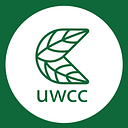Supporting sustainable agriculture in your everyday life
By Jane Pangilinan
In this political era of sustainability against economy, money over environmental friendliness, and choosing pipelines over the validation and recognition of aboriginal peoples’ rights, where does compost stand to make a difference? Does Fair Trade really bring out the best for lifestyles around the world? Why choose sustainable agriculture if it won’t really have an effect in an economy based world?
Benefits of sustainable agriculture include knowing where your food comes from, that your impact is positive and that you are paving the way for a better future. Sustainable agriculture practices include choosing local market produce that does not travel miles to get on the table. This is amazing for not only reducing emissions but also economical benefits in the region you reside in. The money will cycle through your community instead of lining the pockets of private companies and billionaires.
Sustainable agriculture is also founded on the idea that resources are managed well, and the practice itself allows for a chance for rebirth in the resource cycle instead of a complete depletion. Examples of this include careful planning of water usage and upkeep of the environment for future use. Additionally, compost changes the game by taking what could be waste and making it purposeful and reusable instead of lying in a landfill. Organics set a standard not only for quality of food but a better care for what will end up in our bodies.
Now you may be wondering, how can I budget local, organic, and sustainable food into my broke student life?
There are many outlets for cheaper ways to incorporate supporting sustainable agriculture into your budget.
- Local farmer’s markets (like St. Jacob’s Market or the Kitchener Market) are now your new best friends. The deals you see here are not only helping your bank account but also aiding local farmers to continue their businesses. You will find many deals and you can further your impact by refusing a plastic bag for a reusable bag you brought from home.
- Support what you can, especially when it works in your favour. If you see a sale on organic produce, go for it! This creates a demand for these products and an interest in putting these products on sale for more like-minded customers.
- At Sobey’s on Bridgeport, there is a section highlighting local items. Show them some love!
- Take on a green thumb approach and start your own garden! (It’s also cute and Instagram-worthy.)
5. Browse options other than chain stores. They will always have business. Take your business elsewhere, and it will have them restocking on products they see will bring you back to their doors. It also helps to support the companies with ethics and charm that you want to see prosper.
Keep an eye out on the UW Campus Compost Facebook page this week for more posts about sustainable agriculture, and how you can help make a difference!
